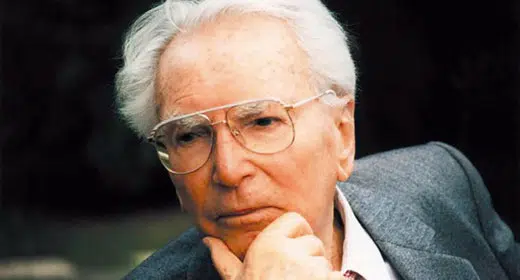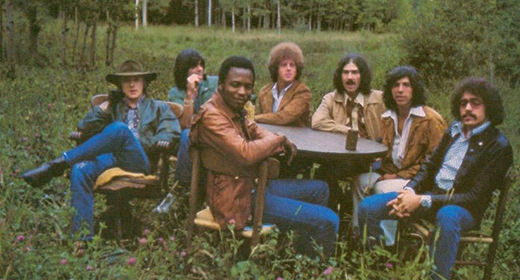by Jonathan Robinson: The great motivational speaker Tony Robbins often says “A lot of people know what to do, but few people do what they know.”
The Buddy System is a method that can help you take consistent action on what you already know will improve the quality of your life. This tool is given last in this book for a reason. The previous 49 methods, like any growth techniques, only work if you use them. The Buddy System is an unsurpassed way to make sure you consistently take actions that have a beneficial impact on your life. Whatever you want to create in your life, having someone who keeps you accountable to your important goals will help. A buddy can help you overcome the problems of laziness and distraction, and can be a critical ingredient that allows you to make your life a living masterpiece.
As I mentioned in the end of the last chapter, the Buddy System works great in conjunction with the I CAN method. There are many other advantages to using a Buddy System in your life. Besides the fact that it can greatly accelerate your progress towards achieving goals, it’s also a great way to develop a friendship. In this chapter, I’ll reveal what I’ve learned about using the Buddy System in a manner that’s simple, effective, and maximally powerful. After trying out some of these suggestions, feel free to adapt this technique to meet your own specific needs.
My buddy and I get together once a week. Like any appointment in our calendar, we choose a precise time and place to meet. When we’re using the I CAN method, the first question we ask is, “How did you do on your contract?” As outlined in the previous chapter, if we missed any of our agreements, we rip up the appropriate amount of money. Then, we give each other a copy of our new contract. After going over our contract, (or if we’re not doing a contract that week), we ask pointed questions about how each other is doing. What follows is a typical list of questions I ask my buddy in order to help him evaluate his life and goals.
- In general, how do you think this week went?
- What did you successfully complete this week that you’re proud of?
- What didn’t you do this week that you would have liked to have done?
- What do you consider to be important to accomplish during the upcoming week?
- What would help you to stay on track towards doing what’s most important to you during this next week?
- What, if any, specific promises would you like to make for the coming week, and how did you do on your promise(s) last week (if you made one)?
As you ask your buddy these questions, listen carefully. You’re free to ask any related questions that come up for you from the answers your partner provides. Your goal should be to assist your partner in discovering specific behaviors that interfere with progress, as well as to remind them of their important goals. Like a good coach, if your buddy needs a pep talk, give him or her an inspiring talk about the importance of realizing one’s most cherished dreams. Once your buddy feels done answering the questions you posed, it’s time for your partner to ask you the same questions. When answering the questions, really try to explore them in as much depth as possible. Hidden within those six questions is a wealth of information to help you get back on track in life.
Question number six is perhaps the most challenging question of the bunch. Although it is not required that you make a specific promise, it can greatly help accelerate your progress towards your goals. If you and your partner are using the I CAN method, then this question isn’t necessary. Yet, if you’re not, this question can help the two of you make precise promises without having to risk losing money if you fail to follow through. Your promise can be whatever would benefit your life, from vowing not to eat any cookies or ice cream, to declaring that you’ll make more sales at work. By sharing specific and measurable tasks with your buddy, it raises the stakes of your partnership and, over time, increases the power of giving your word.
As you get to know your buddy better, you can begin to ask questions that are especially suited to meet each other’s specific needs. For example, because I consider spiritual growth important in my life, my buddy always asks me how connected I felt to Spirit during the previous week. In order to answer that question precisely, I rate my week on a 1 to 10 scale. A ‘1’ means that I never felt connected to the peace within, while a ‘10’ signifies I spent most of the week in a state of bliss. You might try to use a similar rating scale to help you measure and evaluate important goals in your own life.
Depending upon the amount of time you have, you can have your weekly buddy session occur in person–or on the phone. The advantage of doing it on the phone is that the whole thing takes only about 15 minutes. The advantage of doing it in person is that it helps to deepen your relationship, and it can be a fun and inspiring way to spend time together. In my case, each week my buddy and I decide how and where our next meeting will be. If it’s a busy time in our lives, we call each other. If not, we meet over lunch.
In seminars I often get asked, “Who is best to have as a buddy?” Typically, my answer is, “Anybody who is willing.” I have seen the buddy system work well when it has been between husband and wife, roommates, parents and kids, co-worker’s, and even strangers randomly brought together at my workshop. To enlist a buddy, consider having someone you think might be interested in this process read this chapter. Explain to them that this could be a great way to help each other achieve important goals and make positive changes in your life. I think you’ll find the buddy system to be amazingly effective in keeping you focused on what’s truly important to you. Best of all, while you are helping yourself, you’ll also be helping another human being to be all that they can be (without having to join the army).
 Jonathan Robinson is a psychotherapist, best-selling author of 12 books, and a professional speaker from Northern California. Mr. Robinson has made numerous appearances on the Oprah show, as well as many other national TV talk shows, and articles about him have appeared in USA Today, Newsweek and The Los Angeles Times. For the past 30 years he has spoken to dozens of Fortune 500 companies including Google, Microsoft, Dell Computer, Coca-Cola, and Fed-Ex.
Jonathan Robinson is a psychotherapist, best-selling author of 12 books, and a professional speaker from Northern California. Mr. Robinson has made numerous appearances on the Oprah show, as well as many other national TV talk shows, and articles about him have appeared in USA Today, Newsweek and The Los Angeles Times. For the past 30 years he has spoken to dozens of Fortune 500 companies including Google, Microsoft, Dell Computer, Coca-Cola, and Fed-Ex.
Jonathan has written several bestseller books including, “The Complete Idiot’s Guide to Awakening Your Spirituality;” “The Experience of God,” “The Little Book of Big Questions;” and “Communication Miracles for Couples.” His latest book is called, “More Love, Less Conflict.” Jonathan also co-hosts the podcast “Awareness Explorers” with author Brian Tom O’Connor. This podcast focuses on revealing the easiest and most powerful practices for directly awakening to one’s true nature.
Through TV, live lectures and radio, Mr. Robinson has reached over 100 million people around the world. He is known for providing his audiences with immediately useful information presented in a fun and entertaining manner.









































